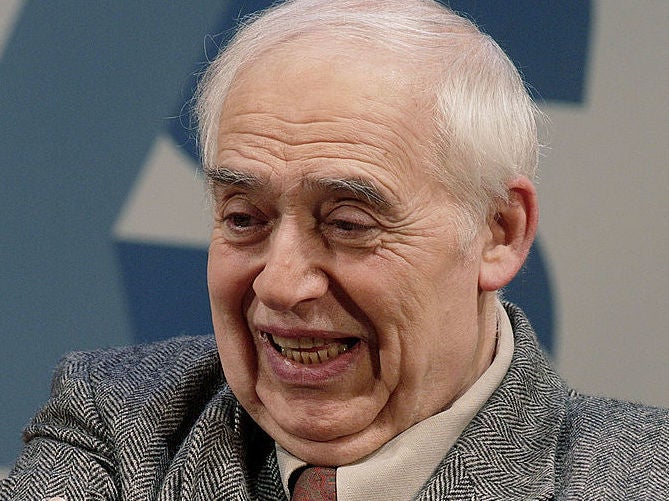Harold Bloom death: Best-selling literary critic who wrote The Western Canon dies, aged 89
Bloom was affectionately dubbed ‘the King Kong of criticism’

Your support helps us to tell the story
From reproductive rights to climate change to Big Tech, The Independent is on the ground when the story is developing. Whether it's investigating the financials of Elon Musk's pro-Trump PAC or producing our latest documentary, 'The A Word', which shines a light on the American women fighting for reproductive rights, we know how important it is to parse out the facts from the messaging.
At such a critical moment in US history, we need reporters on the ground. Your donation allows us to keep sending journalists to speak to both sides of the story.
The Independent is trusted by Americans across the entire political spectrum. And unlike many other quality news outlets, we choose not to lock Americans out of our reporting and analysis with paywalls. We believe quality journalism should be available to everyone, paid for by those who can afford it.
Your support makes all the difference.Harold Bloom, best-selling literary critic and Yale professor, has died at the age of 89.
Bloom’s wife Jeanne confirmed that he had died at a New Haven, Connecticut, hospital after a period of declining health.
Despite these health issues, Bloom had continued to write and teach, with his most recent Yale class taking place just a week before his death.
Bloom was best known for his seminal critical texts The Anxiety of Influence, The Western Canon and The Book of J, and was famed for his ability to take scholarly topics and make them accessible to all.
Bloom argued that creativity was not a grateful bow to the past, but a Freudian wrestle in which artists denied and distorted their literary ancestors while producing work that revealed an unmistakable debt.
The youngest of five children, Bloom was born in 1930 in New York’s East Bronx to Orthodox Jewish immigrants from Russia, neither of whom ever learned to read English. Bloom’s literary journey began with Yiddish poetry, but he soon discovered the works of Hart Crane, TS Eliot, William Blake and other poets. He would allege that as a young man he could absorb 1,000 pages at a time
He graduated in 1951 from Cornell University, where he studied under the celebrated critic M.H. Abrams, and lived abroad as a Fulbright Scholar at Pembroke College, Cambridge. After earning his doctorate degree from Yale in 1955, he joined the school’s English faculty.
Bloom married Jeanne Gould in 1958 and had two sons.
In the Fifties, he opposed the rigid classicism of Eliot. But over the following decades, Bloom condemned Afrocentrism, feminism, Marxism and other movements he placed in the “School of Resentment".
A proud elitist, he disliked the Harry Potter books and slam poetry, and was angered when Stephen King received an honorary National Book Award. When Doris Lessing – author of the feminist classic The Golden Notebook – was awarded the Nobel Prize for Literature, he dismissed the move as "pure political correctness".
“I am your true Marxist critic,” Bloom once wrote, “following Groucho rather than Karl, and take as my motto Groucho’s grand admonition, ‘Whatever it is, I’m against it.’”
Upon hearing the news of his death, former Yale students praised his extraordinary erudition and ability to recite verse from memory. However, others noted allegations of sexual harassment against him. In 2004, the author Naomi Wolf wrote that he made unwanted advances while she was attending Yale. Bloom denied the allegations.
Additional reporting by Associated Press
Join our commenting forum
Join thought-provoking conversations, follow other Independent readers and see their replies
Comments